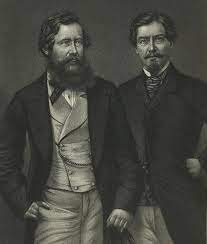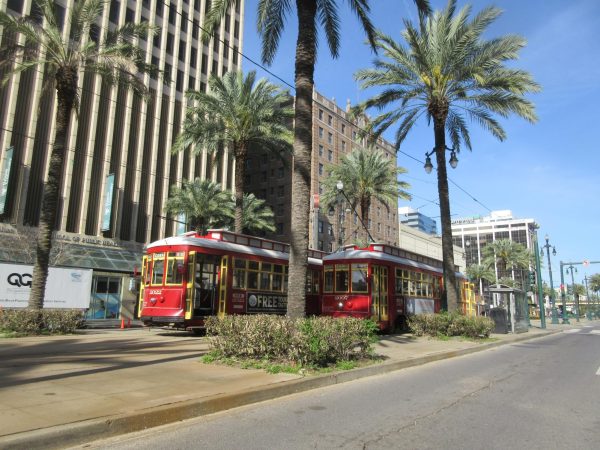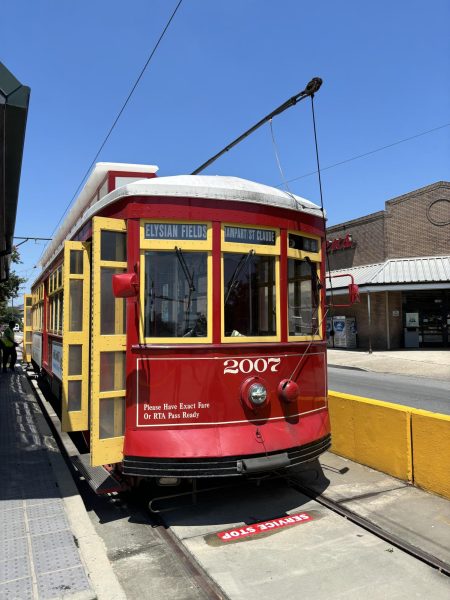The Exploration of Burton and Speke

The Nile River is one of the longest rivers in the world (there is a debate between scientists as to whether or not the Amazon is bigger), and it is a vital resource for many in North Eastern Africa. Without it, the Egyptian civilizations famous for the Pyramids of Giza and King Tut would likely not have existed. However, despite its importance and prominence for thousands of years, until the mid 19th century, its source was a puzzling mystery to geographers across the globe. It was not until an expedition into the heart of Africa in the 1850’s that the source of this great river was discovered. This expedition was headed by two English Explorers: Sir Richard Burton and John Hanning Speke.
Sir Richard Burton, a geographer and explorer as well as a prominent member of the Royal Geographical Society, was an eccentric and extraordinary man. By some counts, he spoke 29 languages of European, African, and Asian origins; he completed and documented the Hajj, or annual pilgrimage to Mecca, in disguise (at the time the penalty for non-muslim Europeans completeing the pilgramge was death) and, in contrast to Victorian chastity, Burton famously translated the Kama Sutra into English from its original Sanskrit. While these adventures only skim the surface of Burton’s life, one of his most important accomplishments came when he joined with his friend and colleague John Hanning Speke on an expedition funded by the Royal Geographical Society into the so-called ‘lakes regions of central Africa’.
John Hanning Speke, the son of a British Officer and a captain in the British army himself, was a man of less eccentricities than Richard Burton, but still had many notable accomplishments. While in India on post with the British army, he explored the Himalayan Mountain region, Mount Everest, and Tibet. He went on three expeditions in Africa and was the first European to reach Lake Victoria.
In 1854, Speke and Burton embarked on their first African expedition together with a number of goals in mind, not least of which was the discovery of the source of the Nile. However, their expedition was cut short when a band of Somali warriors – estimated at 200 strong – attacked their caravan. Many of the members of their expedition were killed, and both Speke and Burton seriously wounded. Burton was impaled by a javelin, which entered his face through one cheek and exited through the other. He was forced to make his escape from the Somalis with the spear still lodged in his head. Both Burton and Speke narrowly escaped with their lives. Upon returning to London, their expedition was viewed as a disaster, and a two year investigation ensued to determine how much of the expedition’s outcome was Burton’s fault, as he was the head of the excursion. While he was mostly cleared of blame, the investigation was still a significant blow to his career.
It wasn’t until 1856 that Burton and Speke would return to Africa to try and complete the mission they had been forced to abandon two years earlier. With the funds for the adventure supplied by the Royal Geographical Society, they set out from Zanzibar with 132 members of their caravan in July of 1857. From the onset their expedition was hindered by diseases and maladies, and both explorers had to be carried in hammocks due to their inability to walk. In addition to this, many of their native caravan members deserted, taking supplies and food with them. Additionally, some arguments erupted between the two explorers, with Speke insisting that the train turn north, believing that they would find the source there. Burton was determined, however, and they pressed on West, deep into uncharted territory for European explorers.
On February 13th 1858, the explorers arrived at Lake Tanganyika. The sight and beauty of the vast lake left Burton awestruck, however Speke was unable to see it because of a temporary blindness he had developed on the expedition. At this point in their adventure, much of their survey equipment was either destroyed, lost, or stolen, so they were unable to carry out the surveys of the land and terrain to the extent which they would have liked. However, on the return journey Burton became ill, and so Speke continued exploring while Burton healed. Speke ventured North, where he had believed the source of the Nile to be for some time. It was here where he discovered Lake Victoria. However, again lacking supplies and instruments, he was unable to properly survey the land. Despite his lack of concrete evidence on the matter, he was convinced that he had finally found the source of the Nile.
The pair returned to Zanzibar in 1859, where Speke immediately departed for London. Upon his arrival he gave speeches and lectures on ‘his’ findings and discoveries during the expedition. He did this without Burton’s presence of permission and he proceeded to portray the story of their expedition, as well as their findings, in his own favour, going so far as to claim Lake Victoria to be the true source of the Nile at a lecture to the Royal Geographical society. Burton would later say that this broke an agreement they had made where they would present their findings for the first time in a speech together. Upon Burton’s return to London, a public argument began between the two, damaging both of their reputations.
On September 16th 1864, the pair were set to debate the subject at a meeting for the British Association for the Advancement of Science. On one side, Speke argued the source of the Nile was the great Lake Victoria, which he had discovered during his expedition with Burton in 1858. However, the issue with this theory was that Speke lacked evidence. He did not have the proper equipment with him at the time of his discovery, and therefore his measurements of the lake’s altitude and dimensions were lacking. Additionally, if Lake Victoria was the source of the Nile, that would mean that according to Spekes measurements, at several points the river would need to be flowing up mountains and hills to account for the estimated altitude of the lake itself. The theory that a river can flow uphill admittedly sounded highly improbable.
On the other side of the debate, Burton argued there was not enough evidence to support any theory about the source of the Nile – and especially not his former partner’s theory. However, he introduced the idea that perhaps there was no single source to the Nile, but instead several lakes and reservoirs which all converged to eventually form the one river. Additionally, Burton also suggested the theory that in fact, it was the lake he had discovered that was far more likely to be the source of the Nile. While the data retrieved on this lake was not outstanding, there was more than for Lake Victoria and there was no altitude issue. Burton’s evidence was stronger, although he admitted there was still little to be had. Because of this, he chose not to fully back one theory or another.
The day before their debate, Speke and Burton were seated next to each other at a lecture, when Speke abruptly left, allegedly saying, “I can’t stand this any longer”. He left the meeting to go hunting on a nearby estate of a relative. The next day, while waiting for the debate to begin, news was delivered to Burton that his former friend, now rival, had been killed. Speke, allegedly had attempted to climb over a stone wall when he accidentally fired his gun into his chest. It was declared a tragic accident, however some have speculated it may have been suicide as a result of his soured relationship with his friend and the complications of their debate.
While there was never a debate between the two explorers and the two never ventured back to Africa together, future evidence would prove that Speke had, in fact, been right all along, despite his lack of evidence to support his theory. Lake Victoria was the source of the Nile.





